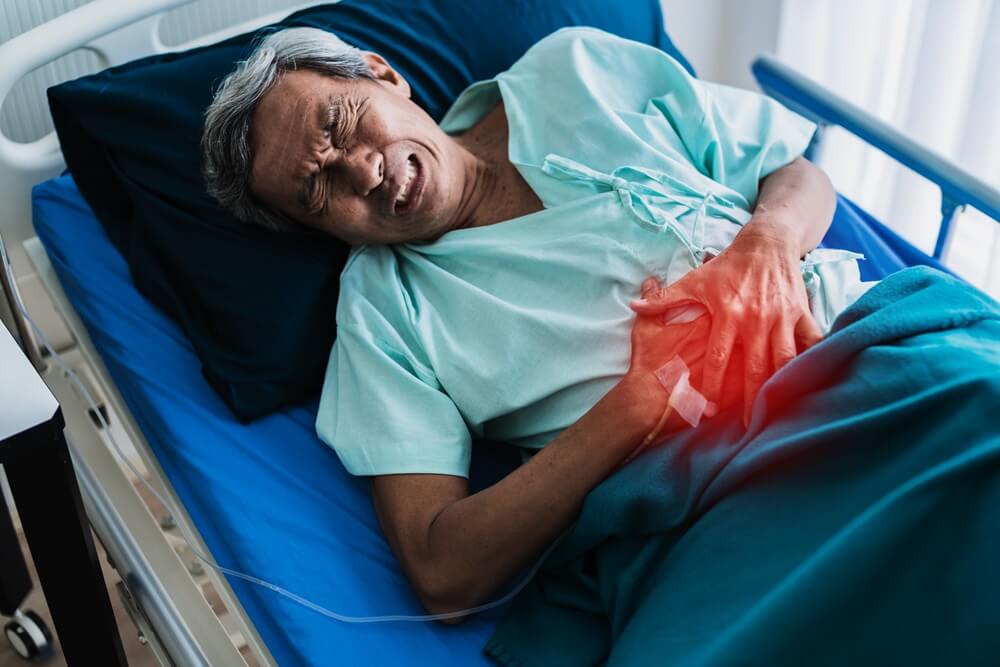
Kidney failure (renal failure) is a medical condition where kidneys lose their ability to function properly, leading to an inability to filter waste products from the blood. This impairment can result from chronic conditions such as diabetes, hypertension, or severe injury. Kidney failure can affect various parts of the body, including the digestive system, but the question remains: Can kidney failure cause diarrhea?
Diarrhea, characterized by frequent loose or watery stools, can stem from many factors, such as dietary intolerances, infections, or adverse reactions to medications. While kidney failure may not directly cause diarrhea, it can indirectly contribute to digestive problems due to the body’s imbalanced internal environment. In this blog, we’ll explore the links between kidney failure and digestive health, including diarrhea.
Understanding the Link Between Kidney Function and Digestive Health
The kidneys play a critical role in maintaining the body’s balance of fluids, electrolytes, and waste products. When kidney function declines, this balance is disrupted, which can lead to digestive issues like diarrhea. Here’s how:
Toxic Build-up (Uremia): When the kidneys fail, toxins accumulate in the blood (a condition called uremia), which can irritate the gastrointestinal (GI) tract. This can lead to nausea, vomiting, and diarrhea as the body struggles to cope with the toxic load.
Electrolyte Imbalance: Healthy kidneys regulate essential electrolytes like sodium (Na), potassium (K), and magnesium (Mg). However, kidney failure can disrupt this balance, causing muscle cramps, abdominal pain, and digestive issues, including diarrhea and constipation.
Fluid Balance: The kidneys help maintain fluid levels in the body. When kidney function is impaired, the body may retain excess fluid or become dehydrated, both of which can affect digestion and bowel movements, leading to diarrhea or constipation.
Medications: Many medications used to treat kidney failure, such as phosphate binders or diuretics, can cause diarrhea or constipation as side effects.
Dialysis: Patients undergoing dialysis, especially peritoneal dialysis, may experience digestive disturbances due to infections or changes in fluid and electrolyte balance.
In short, the kidneys play a vital role in maintaining the body’s internal environment, and when they fail, the digestive system often suffers as a result.
Common Digestive Issues Associated with Kidney Failure
When kidney function declines, patients commonly experience digestive issues, including nausea, vomiting, constipation, diarrhea, and loss of appetite. Let’s explore each in more detail:
Vomiting and Nausea
Nausea is often linked to kidney failure, as the build-up of toxins in the bloodstream can irritate the stomach. Certain medications and constipation can also worsen nausea. To manage nausea, patients may benefit from:
Eating in well-ventilated spaces to avoid strong odors.
Consuming small, frequent meals, and eating slowly.
Trying ginger-based snacks or drinks, such as ginger tea or ginger cookies.
Avoiding spicy foods and not lying down immediately after meals.
Constipation
Constipation is one of the most common gastrointestinal disorders in patients with chronic kidney disease (CKD). It is often caused by low fiber intake, limited fluid intake, and medications like phosphate binders.
Diarrhea
Diarrhea in kidney failure patients can occur due to a weakened immune system, which makes patients more vulnerable to infections. Additionally, dialysis treatments and electrolyte imbalances can contribute to digestive disturbances. According to a study published in BMC Nephrology, patients with kidney disease, especially those with IgA nephropathy, experience higher rates of diarrhea, particularly in female patients.
Loss of Appetite and Weight Loss
Kidney failure often leads to a significant decrease in appetite, particularly as the disease progresses. Reduced food intake can lead to malnutrition and weight loss. Medications such as appetite stimulants (megestrol, dronabinol) and calcium-sensing receptor agonists (like Cinacalcet) can help manage poor appetite in CKD patients.
Why Does Kidney Failure Affect Digestion?
The impact of kidney failure on the digestive system can be explained by several mechanisms:
Buildup of Waste Products
When kidneys fail, waste products accumulate in the bloodstream, irritating the GI tract. This toxic buildup can cause nausea, vomiting, and diarrhea.
Electrolyte Imbalances
Vital electrolytes, such as sodium and potassium, are regulated by the kidneys. When these become imbalanced due to kidney failure, it can disrupt normal muscle and nerve function, leading to digestive issues like diarrhea or constipation.
Medications and Treatment Side Effects
Patients with kidney failure often take a variety of medications, many of which have side effects that include digestive issues. Diuretics, phosphate binders, and certain antibiotics can all cause diarrhea.
When to See a Doctor
Digestive problems in kidney failure patients can sometimes be a sign of serious complications. You should seek medical advice if you experience any of the following:
Persistent or Severe Diarrhea
If diarrhea lasts more than a few days or becomes severe, it could lead to dehydration, which is dangerous for kidney failure patients.
Blood in Stool
Blood in the stool may be a sign of an underlying condition that needs immediate attention.
Dehydration Symptoms
Signs of dehydration, such as dry mouth, dark urine, and dizziness, should be addressed immediately to prevent further kidney damage.
Managing Diarrhea in Kidney Failure Patients
Managing diarrhea in kidney failure patients involves addressing the underlying causes and making lifestyle adjustments:
Dietary Adjustments
Follow a renal-friendly diet that includes fiber-rich foods and avoid high-potassium or high-phosphate foods that can worsen symptoms. Staying hydrated is crucial, but always consult with a healthcare provider regarding fluid intake.
Medications
Certain medications may be prescribed to manage diarrhea and electrolyte imbalances. Always take medications as directed by your doctor.
Staying Hydrated
While fluid intake should be monitored carefully in kidney failure patients, staying hydrated is essential for digestive health.
Tips for a Healthy Digestive System with Kidney Failure
Maintaining digestive health is possible even with kidney failure by following these tips:
Follow Your Renal Diet
Adhering to a kidney-friendly diet tailored to your needs is key. Avoid foods that are high in potassium, phosphorus, or sodium, which can further strain your kidneys.
Stay Active
Regular exercise can help regulate digestion and improve overall well-being. Be sure to discuss with your doctor what kind of physical activity is safe for you.
Manage Stress
Chronic stress can worsen digestive issues. Incorporating relaxation techniques like deep breathing or meditation can help ease symptoms.

